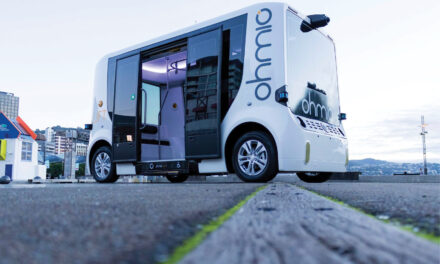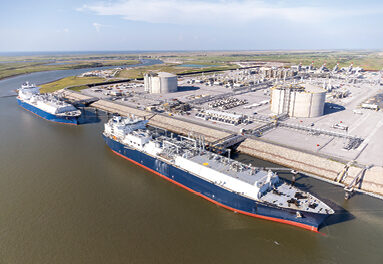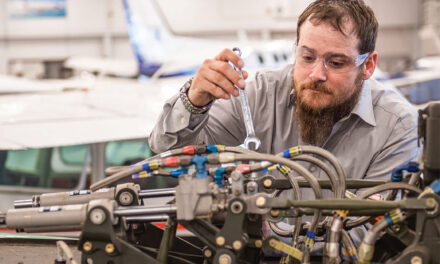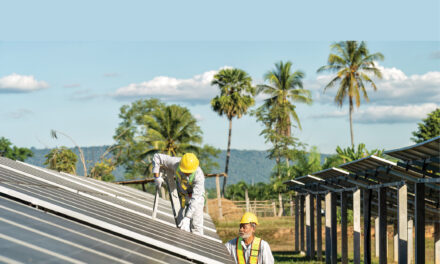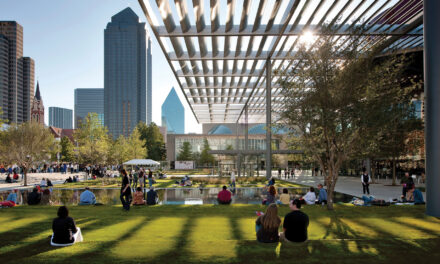
T

he closing out of 2023 was lucrative for the state of Alabama.
A healthy mix of new investments and expansion projects proved that there isn’t a region of the state unfit to meet a company’s needs. If there was one word to describe the state of economic development happening around every corner it would simply be: advancement.
Advancement of production and R&D capabilities. Advancement of new product offerings and renewable energy solutions. And most importantly, advancement of workforce development.
Trust and support are at the heart of many long-term business investment decisions and show why global industry leaders have chosen to have it “Made in Alabama.”
Fits The Strategy
It’s not Alabama’s first rodeo when it comes to landing manufacturing investments, regardless of industry sector.
Within the metals manufacturing sector specifically, the state carries a rich history tied inextricably to the state’s rich mineral deposit history. As of 2023, Alabama boasts more than 1,100 primary metal companies throughout the state and supports a workforce of over 35,000 between primary and fabricated metal manufacturing.
Industry leaders like Novelis and Steel Technologies have flocked to construct and operate here, anchoring their trust in the state’s capabilities. In 2022 alone, the Alabama Department of Commerce reported that Alabama was the ideal location for nearly $2.9 billion in sector investment and saw $1.8 billion for exports of primary and fabricated metal products.
Nucor Corporation is not new to the neighborhood by any means, having operated in Tuscaloosa since acquiring Corus Tuscaloosa in 2004. Almost 20 years later, Nucor plans to bring new life and purpose to its facility. In November 2023, the company announced that its board of directors had approved a $280 million expansion at its Tuscaloosa steel plate mill. The company has strategic plans for the East Coast with the recent opening of its $1.7 billion Brandenburg, Kentucky, steel mill as well as its 23-year-old plate mill in Hertford County, North Carolina.
“The modernization upgrade here in Tuscaloosa supports our overall plate strategy with the commissioning of our new plate in Brandenburg and with the offerings from our plate mill in Hertford County. This upgrade supports both of those and allows us to as a Plate Mill Group to really capture all of the available plate markets that are out there,” says Nucor Tuscaloosa Project Manager Alex Farinelli.
Main markets for the company include power transmission, the railcar industry, highway trailers and heavy equipment in general, according to Farinelli. Customers within these markets are on the hunt for a new material that strays from traditional steel plates they use today, and Nucor is making that wish a reality.
“What we’re seeing across multiple markets is that our customers are wanting their product to be as strong or stronger than it is today, but they want it to be lighter. So, with this upgrade, we will have the ability to produce a lighter-gauge, stronger material than what we currently produce today,” says Farinelli.
Leveraging the production capabilities shared among these three locations, Nucor’s Plate Mill Group will have a capacity of 3 million tons of steel plating per year. The expansion is expected to be complete and operational by mid-2027.
“This upgrade in Tuscaloosa springs us online technologically and competitively with what I would argue are the two most capable plate mills [Brandenburg and Hertford County] in North America that Nucor also owns,” says Farinelli.
While no new jobs are expected to be created by this investment (beyond construction), the company plans to retain all 410 team members at the current facility. As part of the deal, the Tuscaloosa County Industrial Development Authority approved a tax abatement package for construction and equipment costs and a 10-year real and personal property tax abatement.

Nucor plans to expand its Tuscaloosa operations to begin production of a new type of steel plating.
Image courtesy of Nucor Corporation
“Nucor has investments in over 300 operating facilities in North America, and we are proud that the Tuscaloosa facility has been awarded this new business. In today’s global market, companies have a wealth of opportunities regarding where and how to invest in operations,” said Tuscaloosa County Economic Development Authority Executive Director Justice Smyth. “Today’s announcement underscores Nucor’s confidence in our partnership and our people.”
 Crane loading steel roll
Crane loading steel roll
Photo: Getty Images
Solar Energy Incoming
Renewable energy is top of mind for everyone nowadays. These operations aren’t cheap, but the state is ready to help new companies find their footing for new project investment.
In July 2023, Ingka Group — which represents IKEA Retail, Ingka Investments and Ingka Centers — announced that Walker County would be the future home of Project Helios. Supported by a $525 million investment the company has initial plans to introduce three 80 megawatt, 500-acre solar farms with potential to bring on two more in the future, which would bring the total investment somewhere in the ballpark of $800 million.
“The Walker County projects are early-stage developments but have the potential to advance Ingka Group’s wider commitment to secure long-term access to renewable energy that can help to further reduce its footprint and improve renewable energy production,” says Ingka Investments Head of Renewable Energy Investment Frederik De Jong.
A majority of renewable project investments made by Ingka Investments have not previously landed in the United States. Currently, the company owns and operates wind and solar developments in international locations such as Poland, Germany, Sweden and Australia. This move to establish U.S. solar operations aids the company in solidifying its global portfolio, with big plans for Alabama.
Back in 2018, the company acquired 25,000 acres of forest land 158 miles from Walker County in Lowndes County, Alabama, representing its first U.S. forest property that is now used for sustainable production of materials used for IKEA operations. In addition, Ingka owns 12,000 acres of former strip-mined property in unincorporated Walker County, which is expected to house these future solar farms. Final site decisions have yet to be made as design work is in process.
When the project was first announced there was speculation as to whether Alabama Power Company would look to purchase and use energy produced at the site. A company representative confirms that as of this writing, there are no contracts in place for Alabama Power to purchase energy from any of the proposed solar facilities.
The Walker County Commission was able to secure Project Helios, which is the county’s largest economic development capital investment ever, with a 20-year abatement of non-educational property and a sales tax during construction. Each individual farm will take about a year to construct and become operational, which means if all five farms were to come to fruition, buildout would take five to seven years. According to the state’s Department of Revenue analysis, sales tax generated during construction could result in $7 million toward Walker County Schools, or up to $32 million over the project’s 35-year life span.
“The solar park development in Walker County will be eligible for tax incentives standard to the renewable energy business, without which the project would not be feasible,” says De Jong. “Final investment decisions will be taken following further technical design and development activities. We look forward to continuing to work closely and constructively with local officials as we progress these plans.”

Miele plans to begin its first U.S. production by 2026.
Image courtesy of Miele
Until these decisions take place it is unknown what the final investment will be, as well as how many jobs will be created as a result.
A Lot to Like in Opelika
Germany-based appliance manufacturer Miele chose Opelika as the home to its first U.S. manufacturing plant, according to a December 2023 announcement. As of now the investment to be made by the company is unknown, although as phase one of the project expects to come online in 2026 more than 150 new jobs will be created.
The company operates eight locations in Germany, including its headquarters in Gütersloh. As it also operates facilities in Austria, Czech Republic, China, Romania and Poland, the decision to expand into the U.S. was a natural move to increase its global portfolio.
“Overall, Opelika offers the best conditions for a successful start for our new plant, including the long-term perspective for further expansion stages,” said Miele Senior Vice President of Business Unit Cooking Uwe Brunkhorst.
Alabama beat out locations the company considered in Georgia, Tennessee, South Carolina and Mississippi during the site selection process. This facility aims to produce for a number of the company’s business units as its appliance range covers kitchen, laundry and floor care products.
Once phase one is complete, Miele will look to construct a new facility on site that will represent its U.S. production center and will look to build upon its initial workforce hires by 2030.
Alabama Keeps It Healthy
Not only is innovation a consistent factor in the state’s industrial development growth, but it’s also a factor that drives new investment for companies to expand their R&D capabilities.
Over 36 years ago, the now commercial-stage biotech company BioCryst Pharmaceuticals was born in Birmingham, Alabama. While the company moved its U.S. HQ to Durham, North Carolina, 13 years ago, the company still plays a major role in the state from its Discovery Center of Excellence located 14 minutes south of Birmingham in the city of Hoover.
With the support of $1.8 million in tax abatements, which includes a 10-year non-educational property tax break and construction-related sales and use tax break from the Hoover City Council, the company plans to move forward with its $22 million expansion at Riverchase Corporate Park. As part of this expansion the company aims to create 70 new jobs with an average salary of $172,000 per year.
BioCryst’s Discovery Center of Excellence serves as the global company’s hub for R&D within its focus on oral small-molecule and protein therapeutics, which are used to aid treatment of rare diseases. The investment supports build-out of an additional 20,000 sq. ft. of lab space for research areas including biology and pre-formulation, equating to about a 42% overall site increase.
The project is not the only “Discovery” happening in Alabama’s biosciences sector. In October 2023, Discovery Life Sciences opened the doors to its new global HQ at the HudsonAlpha Biotech Campus in Huntsville.
The 93,000-sq.-ft. facility was made possible by $15 million in funding HudsonAlpha received from Alabama’s Public School and College Authority back in 2021, which supported the construction of Discovery Life Sciences HQ and HudsonAlpha’s Center for Plant Science and Sustainable Agriculture.
“These state-of-the-art facilities will cement our market leadership position and enable us to accelerate the research and development of new therapies, diagnostics and technologies by the global healthcare product industry, as well as expand our support of important academic and government-sponsored research worldwide,” said Discovery Life Sciences’ then-CEO Glenn Bilawsky, who continues to serve on the organization’s board.
Here, the company has one goal: Streamline. From genomics, proteomics, molecular pathology and flow cytometry to cell biology services the company offers, this facility aims to streamline sample collection, data analysis and R&D for its service users. The company brought in 115 employees to its new location and has plans to increase new roles.
EV TRAINING UNDERWAY

Mercedes-Benz launched EV production at its Tuscaloosa facility in 2022.
Image courtesy of Mercedes-Benz
In November 2023, Alabama Governor Kay Ivey announced that the state would be constructing a $30 million workforce training center at the Alabama Robotics Technology Park located in the state’s northern city of Decatur.
The Technology Park, operated by the Alabama Industrial Development Training (AIDT) agency, focuses on workforce training for advanced R&D and manufacturing technologies, making it the ideal location for an EV and emerging technologies facility. Many companies in the state send their employees here for relevant training needs. With this new addition the state hopes to make its workforce one of the most competitive in the nation.
“We are in a workforce war, really,” said AIDT Executive Director and Alabama Deputy Secretary of Commerce Ed Castile at the annual North Alabama Industrial Development Association luncheon in Atlanta in December 2023. “Not just Alabama but all over the world. We were barreling toward it pretty fast before COVID, and that pumped it up a bit more. We are a small state, but we’re a mighty state when it comes to a lot of things.”
Off the back of investments by automotive leaders Mercedes-Benz and Hyundai, with a specific focus on EV production between the two, the state knows that these projects depend on a reliable and skilled pipeline of talent.
It’s been an all-hands-on-deck initiative as state leadership and AIDT traveled to EV facilities in Japan and Europe and heard directly from industry leaders as they looked to develop programs for workforce training at the center. In addition, the University of Alabama, the state’s community college system and its K-12 school system plan to play a role in these development efforts.
Currently, Alabama supports about 47,000 automotive manufacturing jobs and vehicles represent the state’s No. 1 export to date. Leaders anticipate that this sector will continue to boom as new investments hit from both manufacturers and suppliers looking to move in, making resources like the EV workforce training center a no-brainer to aid future growth.
“Like your granny’s biscuit mix, there is a recipe: recruitment, pre-employment training, maintenance assessments, safety assessments, centers of excellence, communications, leadership development and on-the-job training,” says Castile. “If you leave out an ingredient, it’s not so good. If you use the whole recipe, it works.”
The 40,000-sq.-ft. facility is in the midst of design work and is expected to become operational by 2025.
Growth Begets Growth

R+L Carriers recommits to Birmingham in moving to a site with 55 more acres to meet demand.
Image courtesy of R+L Carriers
R+L Carriers Vice President Jeff Haungs was not kidding around when he said that the company’s current Birmingham facility could no longer support its growing operations. But that doesn’t mean the global logistics company was looking to leave town.
Instead, the company is investing $36 million to construct a massive new facility on land the company acquired at the Daniel Payne Industrial Park for $3.78 million in November 2023. Currently, the company operates on 15 acres with 65 dock doors. Through this expansion the new 70-acre site will house 130 docks, which will allow for future growth when needed.
R+L Carriers has five locations throughout the state, having opened its 50-acre Huntsville facility in August 2023. “Since the early 1990s, R+L Carriers has served the freight transportation needs of North Alabama,” said R+L Carriers VP of Marketing and Business Critical Sales Greg Bronner at the time of its opening. “Given the increase in freight volumes in this market, this additional capacity supports the shipping public and reflects our continued commitment to grow with our customers in expanding markets and to maintain industry-best transit times.”
As the company prepares for its Birmingham expansion it is looking for support in the process. The city’s Industrial Development Board is set to vote in January on a 10-year property tax abatement and sale and use tax abatement. The project will create 65 new jobs.
